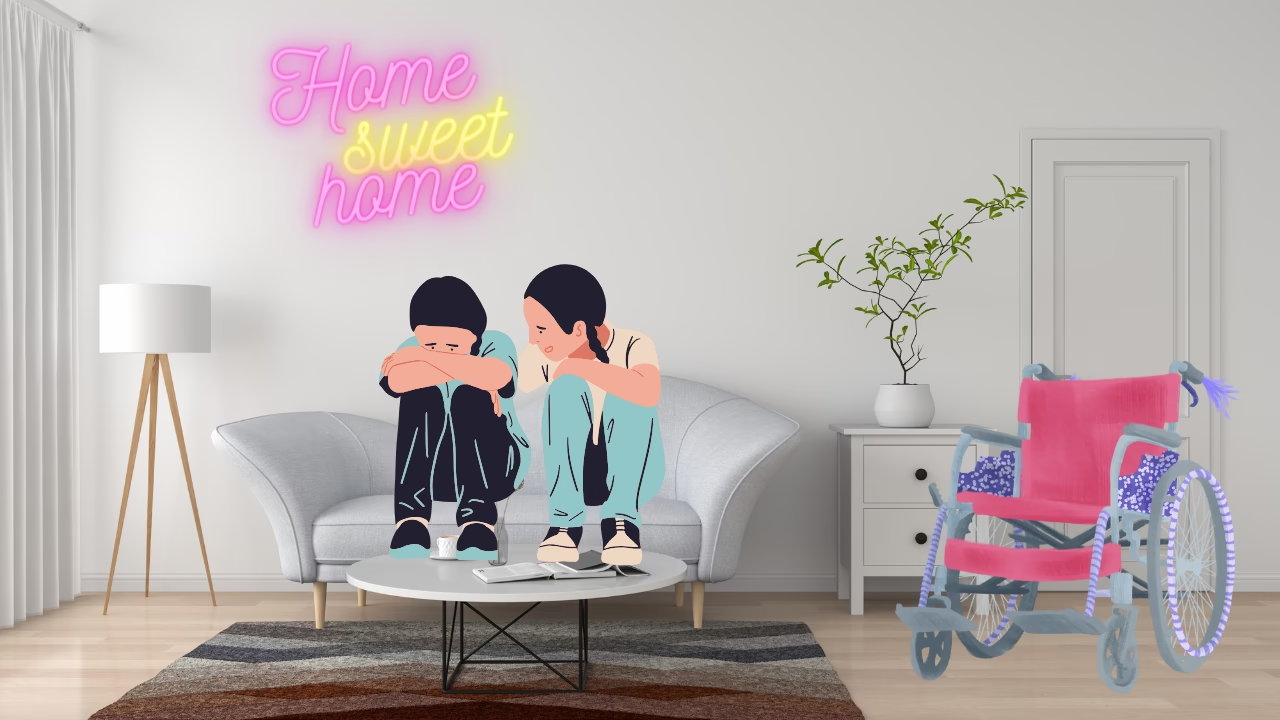🐾Intro to Choosing an Emotional Support Animal
When you’re housebound, life can feel heavy. Loneliness, anxiety, and emotional exhaustion often sneak in quietly and stick around far too long. However, here’s some good news. An Emotional Support Animal can genuinely make a difference.
These animals don’t perform trained tasks like service dogs do. Instead, they bring comfort just by being close. Their presence lifts your mood, eases tension, and helps you feel calmer. Sometimes, having a little heartbeat beside you makes the day feel a bit lighter.
In this guide, we’ll focus on dogs and cats. They’re the most popular emotional support choices—and for good reason. We’ll walk through what might suit you best, especially if your energy is low or your space is limited. From breed ideas to home set-up tips, it’s all here.
We’ll also review the legal details. Emotional Support Animal laws vary depending on where you live. So I’ve gathered key info for the UK, Ireland, USA, Canada, Australia, and New Zealand.
Whether you’re just beginning to explore the idea or trying to explain it to a hesitant landlord, this post aims to support you with warmth, clarity, and real-world advice.
🐶 Dogs as Emotional Support Animals: Energy and Space Considerations
Not all dogs suit all homes. And when you’re housebound, the match matters even more. Your energy level, daily routine, and the size of your space all play a significant role in choosing the right dog.
Some breeds require a lot of stimulation and exercise. Others feel happiest curled up on the sofa next to you. So, let’s break it down.
Low-Effort Companions: If your energy is limited, consider a calm, gentle breed. Think Cavalier King Charles Spaniel, Shih Tzu, or a Greyhound (yes, really—they’re total couch potatoes indoors). These dogs usually enjoy short walks and long naps. Perfect for a quiet pace of life.
Moderate-Energy Dogs: If you can manage a bit more activity, breeds like the Labrador Retriever, Miniature Schnauzer, or Cockapoo might be a good fit. They love human company and thrive with routine.

Space-Savvy Choices: Living in a small flat? Consider smaller breeds, such as Chihuahuas, Pugs, or Bichon Frises. They don’t take up much room and often adapt well to indoor living.
Of course, every dog has its own personality. But breed tendencies can help you narrow it down. To explore further, the Dogs Trust Breed Selector is a brilliant starting point.
Choosing a dog that fits your lifestyle can help prevent stress for both of you. And the right companion can bring not just comfort, but joy.
🐱 Caring for Cats as Emotional Support Animals
Cats make brilliant Emotional Support Animals—especially if you’re low on energy. They’re generally more independent than dogs, which means less hands-on care is required. But they still offer plenty of love and calm companionship.
So, what does cat care actually involve? You’ll need to feed them, scoop the litter tray regularly, and make time for short play sessions. Most cats also enjoy a bit of grooming, depending on their coat type. But unlike dogs, they don’t need walks or constant attention. However, it also depends on the cat when it comes to attention levels!
If you live in a flat or a small home, cats often adapt beautifully. They like having cosy corners to nap in and sunny spots to watch the world go by. And if you’re not able to move around much, that’s okay—many cats will happily curl up beside you or perch nearby just to be close.
Some cats are exceptionally affectionate. Pedigree breeds like the Ragdoll, Burmese, and Scottish Fold often seek out cuddles and will follow you from room to room. Even moggies (mixed-breed cats) can be wonderfully loving, especially if they come from a calm and gentle environment.
The key is matching the cat’s temperament to your own pace of life. A calm cat in a peaceful home can provide a steady, soothing presence. And for many housebound folks, that quiet companionship becomes a lifeline.
🐈 Environmental Adaptations for Cats (Plus Low-Energy Play Ideas)
When you’re housebound, your home becomes the world for you and your cat. That’s why creating an enriching space is key. Cats love to climb, perch, and peek at the world from up high. So, even if your flat is tiny, a few well-placed tweaks can turn it into a feline paradise.

Think vertically. High runways, bookshelf bridges, or even cleared cupboard tops make excellent lookout spots. Add a cosy blanket or soft bed, and your cat will happily snooze above the fray. Window hammocks are another winner, especially if there’s bird activity outside. It provides your cat with visual stimulation, and you receive peace and purrs in return.
If you’ve got any kind of garden, outdoor access can be made safe with a bit of planning. Cat-proof fencing (also known as anticlimb fencing) and mesh tunnels enable your cat to enjoy the fresh air without straying too far. These outdoor zones don’t need to be large. Even a small patio can become an exciting adventure trail with the proper set-up.
And if your energy is limited (which, let’s be honest, it often is), play doesn’t have to mean chasing your cat around the room. Wand toys, especially those with feathers or ribbons, allow you to sit comfortably while keeping your cat entertained. Remote-controlled mice and light-up balls do the hard work for you. And yes, the good old laser pointer—used safely and not too long—can give your cat a workout with minimal effort from you.
It’s all about finding that sweet spot where your cat stays curious, and you remain rested. And if you’re wondering where to source any of these items, just ask—I’ve scouted half the internet already!
🐕🦺 Environmental and Owner Adaptations for Dogs (Plus Special Training)
Dogs are loyal companions, but they do need a bit more hands-on care than cats. That said, with the correct set-up, they can fit beautifully into a low-energy lifestyle. It begins with creating easy-care routines and adjusting your space to accommodate both of you.
Think about small pet zones. Like a dog bed close to your favourite chair, or a feeding station with everything within reach. Little changes like these can make life smoother. Ramps can help dogs access sofas or beds without needing to be lifted. If you’ve got an outdoor space, long leads and enclosed areas give them freedom. They sniff and explore, while you rest nearby.
Puzzle feeders and slow bowls turn mealtime into enrichment. They keep dogs mentally engaged and slow down eating. These are especially helpful if mobility limits how often you can walk or play with them.
Training doesn’t need to be overwhelming. Even without official recognition for Emotional Support Animals (ESAs) in some countries, there are organisations such as Assistance Dogs International or Dogs for Good who offer guidance. Sometimes, they provide a referrals scheme or support programmes tailored to specific disabilities or emotional needs.

You can also train basic emotional support behaviours at home. Teaching your dog to nudge you during anxiety, rest quietly by your side, or alert you to changes in your routine can be life-changing. Many of these behaviours begin with simple cues and consistency. You don’t need military precision or hours of effort.
Dogs are wired to connect. With a few adjustments, your bond can be both deeply supportive and surprisingly manageable.
📜 Understanding Legal Rights and Emotional Support Animal Qualification
🇺🇸 USA: The Most Recognised System
In the United States, ESAs are recognised under the Fair Housing Act. Suppose your GP or therapist provides a formal ESA letter. In that case, landlords must usually allow your animal, even in no-pets housing. However, airlines now set their own rules. Many only allow service dogs, so it’s best to check before you fly.
To qualify, you’ll need a letter from a licensed mental health professional confirming that your pet supports a diagnosed condition. However, online ESA certificate services often lack credibility; therefore, it is advisable to work with a trusted practitioner whenever possible.
🇬🇧 UK and Ireland: No Formal Recognition
The UK and Ireland don’t legally recognise ESAs. This means that animals offering emotional support don’t have any public access or housing rights. But that doesn’t make them irrelevant. If your pet plays a role in managing your condition, a GP or support worker may still advocate for you, especially in housing settings where ‘reasonable adjustments’ apply under the Equality Act.
Still, landlords don’t have to say yes. It often comes down to whether you can show how the animal supports your daily function or well-being.
🇨🇦 Canada: It Depends on the Province

Canada doesn’t have a national ESA law. Instead, provincial rules vary. Some housing laws treat ESAs as part of accessibility rights, while others require them to be trained service animals. An ESA letter from a therapist can still carry weight, especially in housing or care settings.
Travelling with an ESA in Canada also depends on the airline. WestJet and Air Canada, for example, have different policies, so it’s always best to double-check the latest terms and conditions.
🇳🇿 New Zealand: No Emotional Support Animal Law, But Possible Flexibility
New Zealand doesn’t have a formal ESA system. However, some mental health professionals can still include animals in your care plan.
Landlords aren’t legally required to allow them. Yet, individual property managers may make exceptions when animals are clearly part of your well-being routine.
There’s also no ESA travel support, but emotional support pets may be welcomed informally, depending on the airline.
🇦🇺 Australia: No Emotional Support Animal Category, But GPs Can Help
Australia also lacks a formal ESA law, but GPs can write support letters explaining your need for an animal. Some state housing services will consider this as part of a health-related accommodation request.
While service dogs are widely accepted, emotional support animals are not guaranteed access. As always, it helps to have clear documentation that outlines your needs in plain language.
📝 So, Can You Qualify for an Emotional Support Animal?
Yes—if your animal helps with a medical or mental health condition, and a licensed professional is willing to document that. Whether it’s a brief letter from your GP or a comprehensive care plan, start by consulting someone familiar with your health situation.
Even in countries without official recognition, you may still receive support in areas like housing or care planning.
🚪 What to Do If Your Emotional Support Animal Isn’t Accepted in Housing
Being told “no pets allowed” can feel disheartening, primarily when your animal supports your mental health. But don’t panic. There are steps you can take.
🧾 Know Your Region’s Tenant Laws
Tenant protections vary by country. In the United States, ESA status can provide you with legal protection. Under the Fair Housing Act, landlords are usually required to make reasonable accommodations.
But in the UK, Ireland, Canada, Australia, and New Zealand, emotional support animals aren’t consistently recognised by law. In those cases, landlords are within their rights to refuse pets, even if they’re vital to your well-being.
🛠️ Explore Your Options
If you’re told no, ask why. Some landlords might change their minds if they understand your situation. Share an ESA letter (if relevant), explain how your animal helps you, and suggest solutions, like pet insurance or extra cleaning.
Still getting nowhere? It might be time to:
- Contact a local housing advocate or legal advisor
- Use tenant advice services (most countries have them)
- Get support from mental health or disability organisations
📢 Don’t Go It Alone
You don’t have to fight this battle solo. Whether it’s drafting letters or appealing a refusal, some services can guide you. A calm, informed approach goes a long way—and so does persistence.
🙏 Asking God to Help You Find the Right Emotional Support Animal
Bringing home a support animal is a big decision. Inviting God into that decision can make all the difference. Sharing your worries, limitations, and hopes with Him is a powerful way to begin.
Sometimes the “perfect” animal isn’t the one you were expecting. Occasionally, it’s not the one you wanted at first. But God knows precisely what comfort your soul needs.
Ask Him to guide you. Let Him lead you to the right rescue, shelter, or breeder. Invite Him to speak peace to your heart when you’ve found the right one.
Even if you’re housebound, He can still do the leading. He can prompt someone to send you a post. Sometimes He can place the right animal in the right group at the right time.
This isn’t just about pet ownership. Firstly, it’s about partnership. It’s about healing. Ultimately, it’s about having a creature near you that reflects a small part of His care.
He already knows who will soothe your worst moments. And He already knows which animal will be patient with your off-days. Not only that, He already knows what kind of loyalty you need.
So pray first. Choose second. And trust that He’ll make the match.
🐾Conclusion: Choosing the Right Emotional Support Animal for You
Choosing an emotional support animal is a personal journey. It’s not just about the species. It’s about your lifestyle, your needs, and your ability to care for the animal in return.

You’ve learned what makes a good ESA. You’ve looked at legal rights, housing issues, and emotional bonds. Now it’s time to take a breath—and choose carefully.
Your animal won’t fix everything. But the right one will help you cope. It will sit beside you on hard days. It will make you smile when nothing else can.
Even if the world doesn’t “recognise” your ESA, you do. You know what brings you peace. You know what helps you heal. That matters more than anything else.
So choose intentionally. Choose prayerfully. And when you find the one that fits, let the healing begin.
✅Additional Resources
The UK & Ireland:
- Dogs Trust: https://www.dogstrust.org.uk/
- Cats Protection: https://www.cats.org.uk/
- Citizens Advice: https://www.citizensadvice.org.uk/
- Housing advice (Shelter): https://england.shelter.org.uk/
The USA:
- ADA Info: https://adata.org
- Emotional Support Animal registry (note: not required): https://www.nsarco.com
- NAMI Mental Health Support: https://www.nami.org
Canada:
- Canadian Mental Health Association: https://cmha.ca
- Tenancy and pet laws by Province (e.g., Ontario Human Rights Commission): https://www.ohrc.on.ca
Australia:
- RSPCA: https://www.rspca.org.au
- Mind Australia (mental health): https://www.mindaustralia.org.au
- Pet-friendly housing resources by state
New Zealand:
- SPCA: https://www.spca.nz/
- Mental Health Foundation: https://mentalhealth.org.nz
- Residential Tenancies Act – Pet clauses: https://www.tenancy.govt.nz






